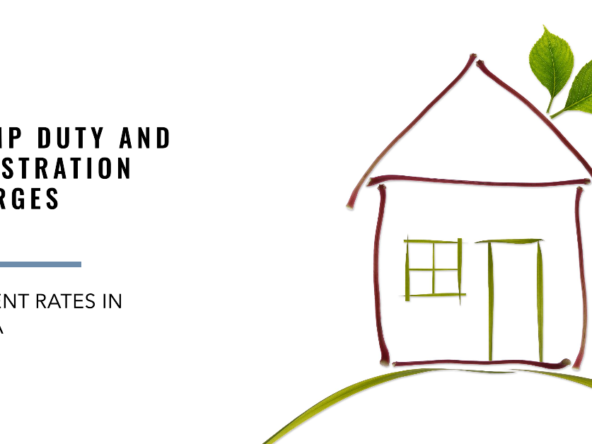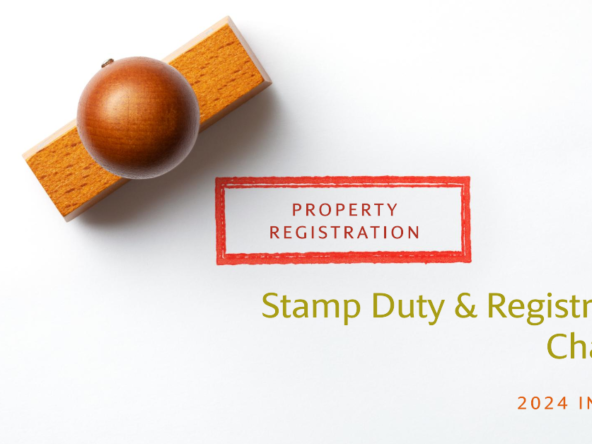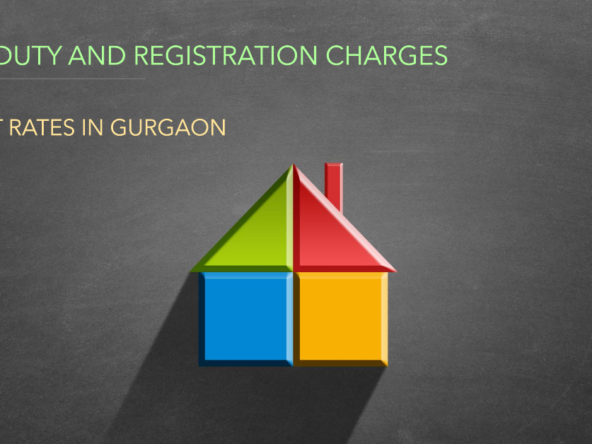Property registration is the process of legally recording your ownership of a property with the government. This vital step not only establishes your ownership rights but also provides legal protection against future disputes. As you navigate the exciting yet complex world of Indian real estate, understanding the property registration process and the required documents is essential.
We understand that navigating the legalities of property ownership can be overwhelming. That’s why we’ve created this comprehensive guide to streamline your experience. This blog post serves as a clear and up-to-date checklist of documents required for property registration in India. By ensuring you have everything in order, you can approach the registration process with confidence.
1. The Essential Documents Checklist for Property Registration
The specific documents required for property registration in India can vary slightly depending on the state. However, the core documents remain consistent across most regions. Here’s a breakdown of the essential paperwork you’ll need to gather:
- Identity Proof: Both the buyer and seller must provide valid identity proof documents. These can include:
- Aadhar Card: A government-issued identification document with a unique 12-digit number.
- PAN Card (Permanent Account Number Card): An alphanumeric card with 10 numbers that is issued for taxes by the Income Tax Department.
- Voter ID Card: An identity document issued by the Election Commission of India.
- Passport: A valid passport can also be used as identity proof.
Pro Tip: Always carry original documents for verification and provide clear photocopies for the registration process.
- Property Documents: These documents establish ownership and details of the property being registered. They typically include:
- Sale Deed (Original and Verified Copy): This is the most crucial document as it transfers ownership rights from the seller to the buyer.
- Latest Property Register Card Copy: This card issued by the local municipal corporation contains details about the property, including its size, location, and ownership history.
- Encumbrance Certificate (EC): This certificate, issued by the Sub-Registrar’s office, confirms that the property is free from any legal or financial encumbrances like outstanding loans or mortgages.
- Municipal Tax Bill Receipt: A recent receipt demonstrating that property taxes are up-to-date.
- Approval Documents (if applicable): Sometimes, you may need additional approvals from local authorities, such as building plans or no-objection certificates (NOCs) from housing societies.
Remember: It’s always advisable to double-check with the Sub-Registrar’s office in your specific location to ensure you have all the necessary property documents.
- Other Documents (Optional): Depending on the property and the specific situation, some additional documents might be required. These may include:
- Power of Attorney: If someone is representing another party during the registration process, a legally documented Power of Attorney is essential.
- Completion Certificate (if applicable): This document, typically issued by a builder, certifies that the construction of the property is complete as per the approved plan.
- No Objection Certificate (NOC) from Society or Builder: In some cases, societies or builders may require NOCs before allowing property registration.
—More Info: Ministry of Housing and Urban Affairs—
2. Additional Tips for a Perfect Registration Process
It’s important to remember that property registration regulations can vary by state. Here are some additional tips to ensure a smooth registration process:
- Consult a Lawyer or Local Government Office: We strongly recommend consulting with a qualified lawyer or the local Sub-Registrar’s office in your area. They can provide the most up-to-date information on specific requirements and address any questions you might have based on your unique situation.
- Stay Updated: Property registration regulations can change occasionally. Staying updated through government websites or consultations with legal professionals can help you navigate any potential changes.
- Be Prepared: Gather all the documents well in advance to avoid delays in the registration process.
- Organize Your Documents: Proper organization is key! Arrange your documents neatly in separate folders or files categorized by type (identity proof, property documents, etc.) for easy access during the registration process. This not only saves time but also demonstrates professionalism.

3. Beyond the Checklist: Value-Added For More
Here are some additional insights to empower you throughout your property registration journey:
- Understanding Stamp Duty and Registration Fees: Stamp duty and registration fees are mandatory charges associated with property registration. These fees vary depending on the state and the property value. We recommend researching these fees in advance or consulting a lawyer for an accurate estimate.
- The Role of a Lawyer: While not always mandatory, involving a lawyer in the property registration process can offer significant benefits. Lawyers can help you review documents, ensure legal compliance, and address any unforeseen complexities that may arise.
- The Importance of Verification: Before finalizing the registration, thoroughly verify all documents for accuracy and completeness. Ensure there are no errors or discrepancies, as these can delay the process.
- Post-Registration: Once the property is registered, maintain a secure and organized file of all registration documents for future reference. This will be crucial if you decide to sell the property or require them for any legal purposes.
4. Conclusion: A Smooth Registration Process for Your Dream Property
By following this checklist and incorporating the valuable insights, you can approach property registration in India with confidence. Having all the necessary documents in order and understanding the associated legalities will ensure a smooth and successful experience. Now, you can move forward with registering your dream property and embarking on a new chapter in your life.
Congratulations on your property purchase! Wish you all the best in your future endeavors.
5 .Additional Resources:
Here are some helpful resources that you may find informative:
- Ministry of Housing and Urban Affairs, Government of India
- State Government Websites: Most state governments in India have dedicated websites that provide information on property registration procedures and requirements.
Remember, this blog post serves as a general guide, and specific regulations might vary by location. We encourage you to consult with a lawyer or the local Sub-Registrar’s office for the most up-to-date and personalized information.
Disclaimer: The information provided in this blog post is for general informational purposes only and does not constitute legal advice.
FAQ's
The core documents required for property registration are fairly consistent across most Indian states. However, there can be slight variations depending on the specific location. It’s always best to confirm the exact requirements with your local Sub-Registrar’s office.
Yes, there are two main fees associated with property registration:
- Stamp duty: This tax is levied by the state government and varies depending on the state and the property value.
- Registration fees: These fees are charged by the government for processing the registration application.
While not always mandatory, consulting with a lawyer can offer significant benefits. Lawyers can help review documents, ensure legal compliance, and address any complexities that may arise.
Errors or discrepancies in documents can delay the registration process. This is why careful verification of all documents before finalizing the registration is crucial.
Once the property is registered, it’s important to maintain a secure and organized file of all registration documents. Keep them safe for future reference, such as if you decide to sell the property or need them for legal purposes.
Here are some helpful resources:
- Ministry of Housing and Urban Affairs, Government of India
- State Government Websites: Most state governments in India have dedicated websites that provide information on property registration procedures and requirements.





